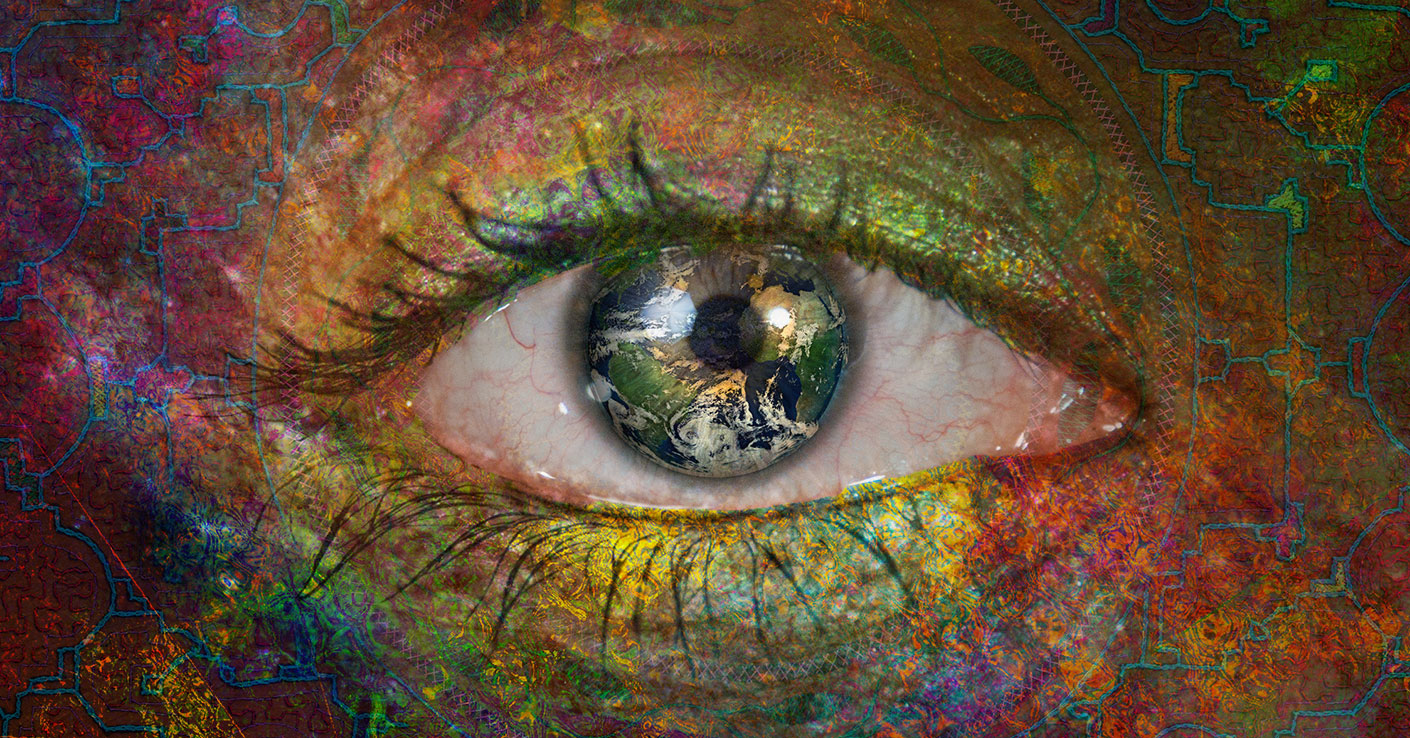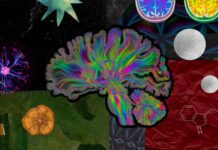- Love and Psychedelic Psychotherapy: Bridging the Divide - February 25, 2021
- Ayahuasca and the Power of Forgiveness - December 14, 2016
Many have said that “forgiveness is a gift we give ourselves,” but what happens when you just can’t get there? As a clinical psychologist, I’ve met with many psychotherapy clients who were able to recognize that they needed to forgive a loved one, but somehow they remained blocked by their pain. Having now conducted formal research on ayahuasca drinking, and, as a human being who has struggled to forgive at various points in my life, I believe that combining a sincere desire for forgiveness with the benefits of the plant medicine ayahuasca can have profound healing effects. And these effects may not otherwise be possible through “talk therapy” alone.
Family relationships play an integral role in the psychological and physical health of its members, for better and for worse. An infant’s brain develops in concert with their primary caregivers. This process begins in utero and continues to unfold over the course of childhood and adolescence. This means that children are literally wired to their parents —and for life.1 For this reason, strained or estranged parent-child relationships can have a profound effect on an individual’s emotional and physical health. These negative effects can be felt regardless of the circumstances surrounding the breakdown. Decades later, individuals reflecting on their lives will still lament the deep pain of parent-child ruptures.
Research is now teaching us that resentment and “unforgiveness” of what was so painful during childhood can have direct and serious negative consequences on one’s health throughout life. In fact, where there is resentment towards another, there is nearly always a parallel process of guilt and shame about one’s own role in the breakdown of the relationship. This results in suffering not only in relationship with the other person, but also with ourselves. The possible repercussions are many, and can span from difficulty forming healthy relationships to a compromised immune system —even being at increased risk for cardiac problems.2
Resentment is like taking poison and waiting for the other person to die.
A number of studies have found that the ability to forgive is related to better mental health, including lower levels of anxiety, depression, and anger, and a better ability to cope with stress and adversity. Forgiveness has also been related to benefits for the body, including better health habits. Studies have found concrete evidence of this, from changes in cell counts to increased immune response.3
The experience of deep forgiveness during an ayahuasca ceremony is not a newly reported phenomenon. Many have shared profoundly healing forgiveness experiences after having drunk this powerful tea. This includes forgiveness not only of others, but of themselves as well; two for the price of one! And so we really see to what extent forgiveness is an “inside job.” It is a personal and internal one (wo)man process, and it is very different from relationship reconciliation, which involves two parties.4 This intra-personal process can lead to two forms of forgiveness: decisional forgiveness or emotional forgiveness.
Decisional forgiveness involves a choice to actively resist an unforgiving attitude, making a conscious choice to respond in a peaceful manner toward the other. Emotional forgiveness, on the other hand, is the replacement of negative, unforgiving emotions—anger and grief—with feelings of compassion, and even love for the other. Emotional forgiveness involves emotional transformation, and is considered the more powerful and healing of the two “types” of forgiveness.5
Ayahuasca can be instrumental in facilitating emotional forgiveness in individuals who are open to healing painful childhood experiences, including trauma.
In my own research, our team interviewed individuals with mental health issues about the impact of their ceremonial ayahuasca use on their physical and mental health, including their relationship health. We were surprised to find that a number of participants shared that they experienced “emotional forgiveness” in the context of child-parent relationships, sibling relationships, and former romantic relationships. This forgiveness seemed to include both a transformation of the resentment and grief for “what could have been” as well as an emergence of loving feelings toward the other. It even included a desire to offer them support and validation—and with no expectation for anything in return. Although the “how” of this process remains unclear, it seems that ayahuasca allows for the individual to move through the “swamp” of pain to a place of deep knowing that their parents, siblings, and former partners did in fact love them, and they did so as well as they were capable. One woman recently shared her experience with ayahuasca and forgiveness:
In my first ceremony, I saw very clearly that my mother was “checked out” emotionally throughout my childhood, because that’s how she coped with her pain. She wasn’t ignoring me because I was unlovable, which is the story I had been telling myself. In fact, I saw that she loved me deeply. I “hated” her for years and now—having experienced the “truth” of it—my heart bursts with love and compassion for her.
In some ways, these reports are unsurprising. In my years of clinical work focused on family healing, I have witnessed time and time again that people of all ages, from 6 to 60, yearn to forgive their parents and that, above all else, parents desire reconciliation with their children.6 This is true even when, on the surface, the parent or child’s behavior would suggest the opposite. In fact, most often, what prevents many parents from initiating reconciliatory behaviors with their children is fear: fear of blame, fear of rejection, and fear of facing the deep shame they carry for not having been “perfect parents.”7 Yet, underneath all self-protective behaviors in the context of relationships, is a longing to forgive, connect, and love.
Now, do you need to drink one of the most powerful psychedelics on the planet to finally forgive your parents or your ex? Of course not. I can’t even guarantee that you would experience this type of transformation even if you did. But, one thing is clear to me: accepting an unspoken apology is a pathway toward freedom, and ayahuasca may help you to get there.
- Siegel, D. J. (2001). Toward an interpersonal neurobiology of the developing mind: Attachment relationships,“mindsight,” and neural integration. Infant mental health journal, 22(1-2), 67–94. ↩
- Toussaint, L., & Cheadle, A. C. (2009). Unforgiveness and the broken heart: Unforgiving tendencies, problems due to unforgiveness, and 12-month prevalence of cardiovascular health conditions. In M. T. Walker & A. C. D. Cheadle (Eds.), Religion and psychology. New York, NY: Nova Publishers. ↩
- Seybold, K. S., Hill, P. C., Neumann, J. K., & Chi, D. S. (2001). Physiological and psychological correlates of forgiveness. Journal of Psychology and Christianity, 20(3), 250-259. ↩
- Fincham, F. D. (2015). Forgiveness, family relationships and health. In in L. Toussaint, E. L. Worthington, Jr. & D. Williams (Eds.), Forgiveness and Health (pp. 255-270). New York City, NY: Springer. ↩
- Worthington Jr, E. L., Witvliet, C. V. O., Pietrini, P., & Miller, A. J. (2007). Forgiveness, health, and well-being: A review of evidence for emotional versus decisional forgiveness, dispositional forgivingness, and reduced unforgiveness. Journal of behavioral medicine, 30(4), 291-302. ↩
- Lafrance Robinson, A., Dolhanty, J., Stillar, A., Henderson, K., & Mayman, S. (2014). Emotion‐Focused Family Therapy for Eating Disorders Across the Lifespan: A Pilot Study of a 2‐Day Transdiagnostic Intervention for Parents. Clinical psychology & psychotherapy. ↩
- Stillar, A., Strahan, E., Nash, P., Files, N., Scarborough, J., Mayman, S., … & Marchand, P. (2016). The influence of carer fear and self-blame when supporting a loved one with an eating disorder. Eating disorders, 24(2), 173-185. ↩
Take a minute to browse our stock:
Did you enjoy reading this article?
Please support Chacruna's work by donating to us. We are an independent organization and we offer free education and advocacy for psychedelic plant medicines. We are a team of dedicated volunteers!
Can you help Chacruna advance cultural understanding around these substances?













